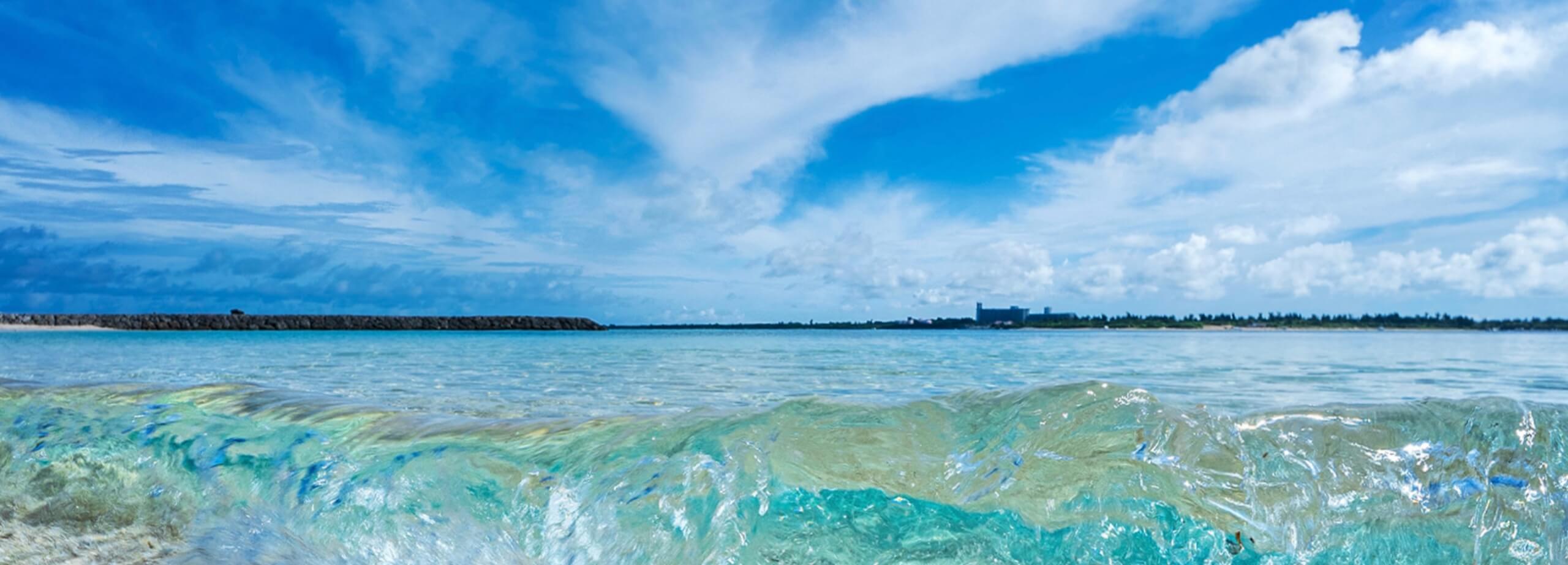
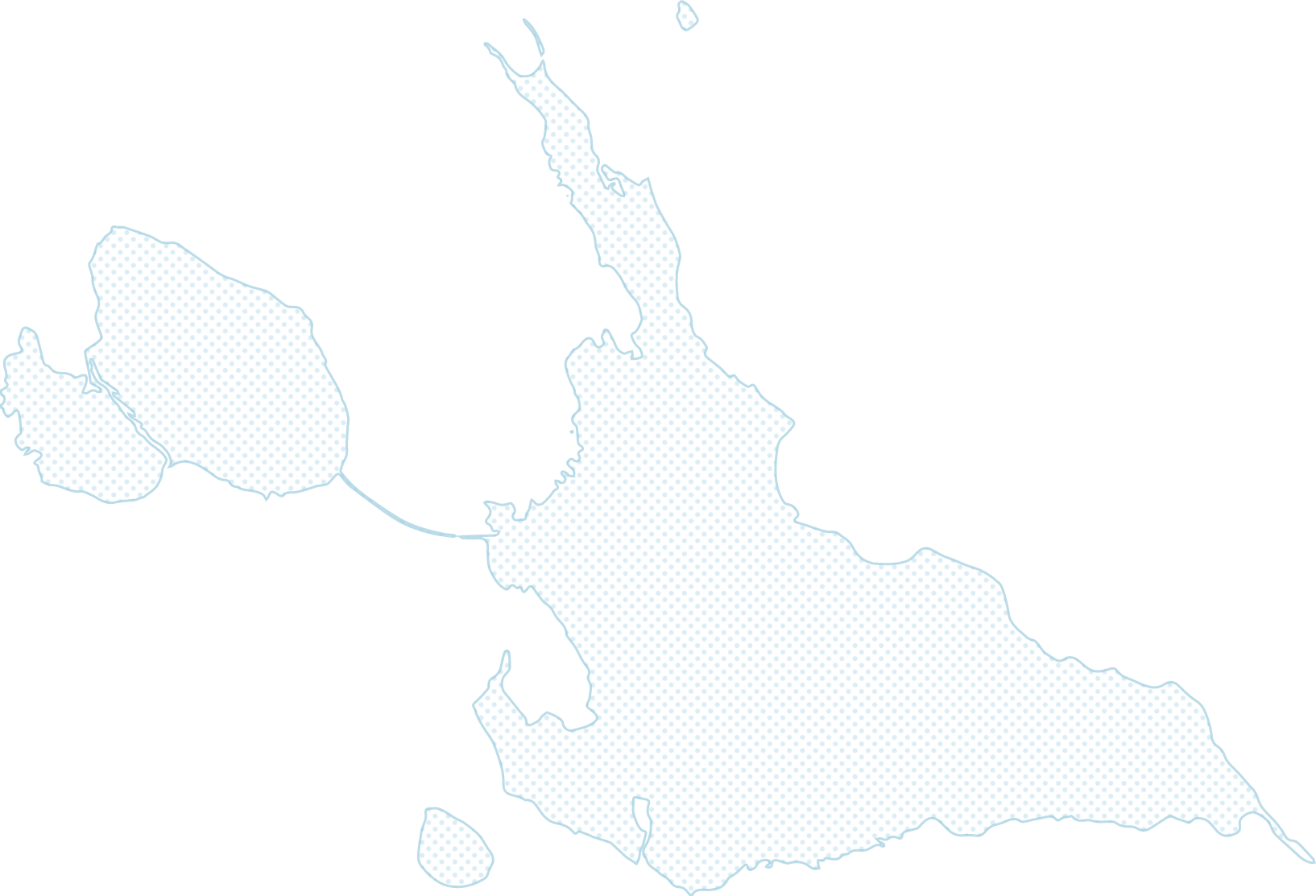
Our goal is to make Miyakojima Island
increasingly beautiful
attract more tourists to visit.
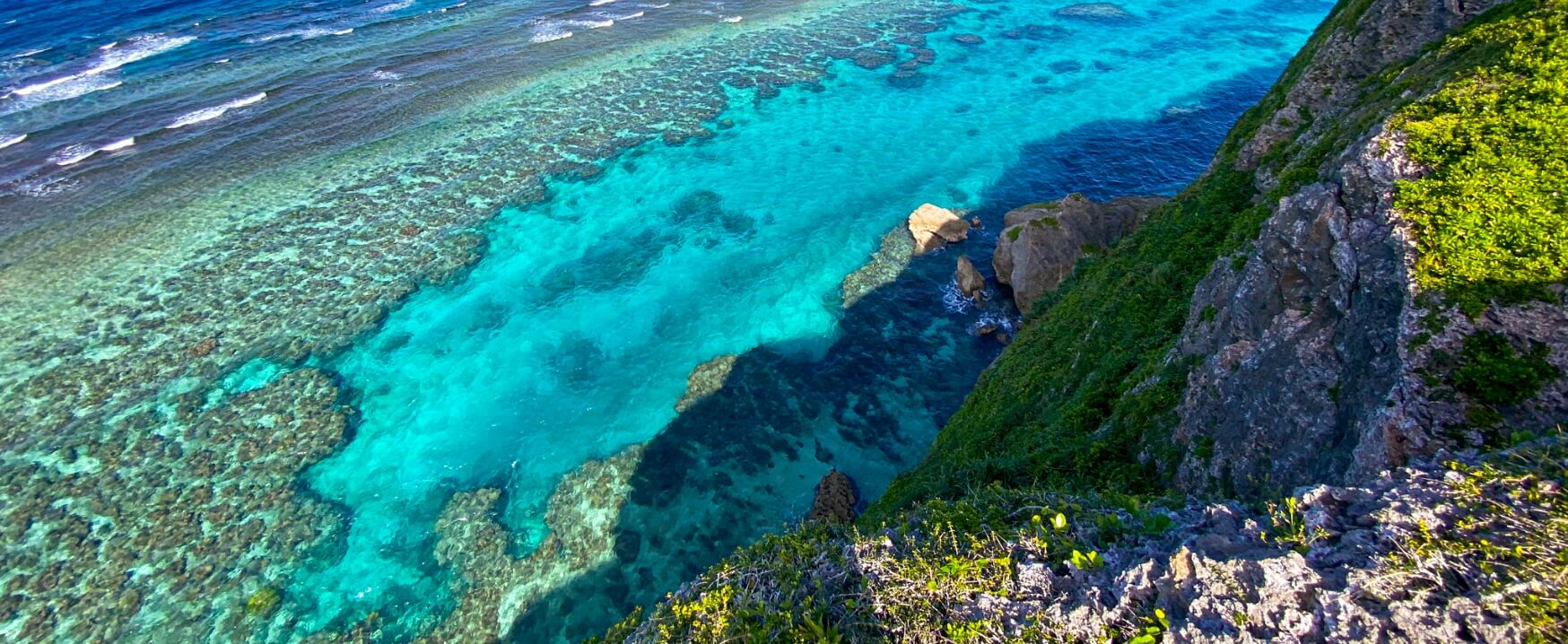
At Eco Guide Cafe, we have been dedicated to environmental management (ISO14001) for many years, aiming to reduce the environmental burden on visitors to Miyako Island.
We continuously train over 3,000 visitors each year, teaching them how to treat coral reefs with care and respect. After the opening of the Irabu Bridge, we are committed to promoting, practicing, and raising awareness about non-contact etiquette, while also making efforts to reduce the environmental impact on tourists.
Additionally, until a few years ago, up to 35,000 crown-of-thorns starfish were removed annually to ensure the ongoing protection of the coral reefs surrounding Irabu Island and Shimojishima Island.
EcoManners is practiced to ensure the preservation of Miyakojima Island's beautiful coral reefs for future generations. Therefore, it is important for us to adhere to etiquette while enjoying various activities. In the field of Eco Guide Cafe tours, you can enjoy observing fish swimming freely in their natural environment. In order to pass on the healthy coral reefs of Miyakojima Island to the next generation, we have made various efforts and taken measures. To achieve this, we organize eco-tourism activities based on "EcoManners," where every participant in our programs learns and adheres to marine activity etiquette that is friendly to the natural environment.
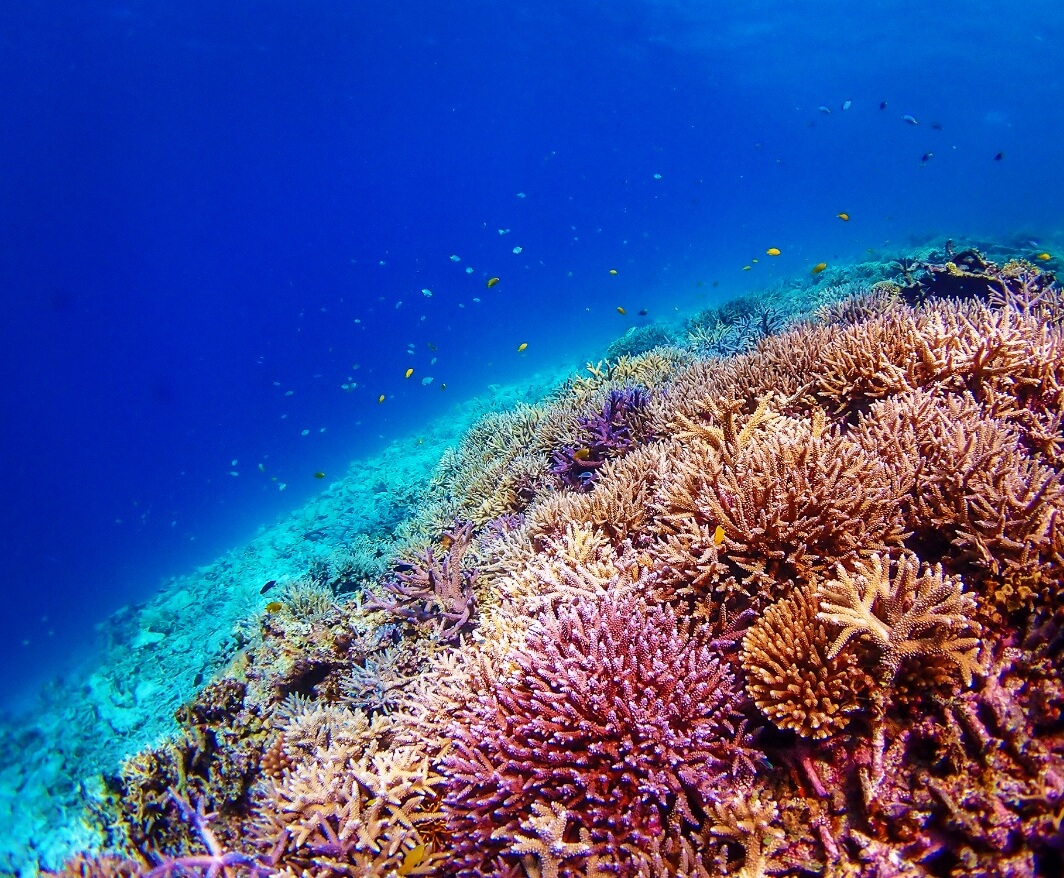
Even between rocks and stones, there are coral babies that settle and take root, invisible to the naked eye. "Not touching the coral" applies not only to visible corals but also includes ecological etiquette to protect coral babies. We are committed to protecting all corals, both adult corals and coral babies, to ensure their survival and reproduction. Eco Guide Cafe, in collaboration with Miyakojima City, implemented the "No-Touch Coral" initiative, which was recognized with the Environmental Minister's Award at the 2019 Biodiversity Action Awards.
01
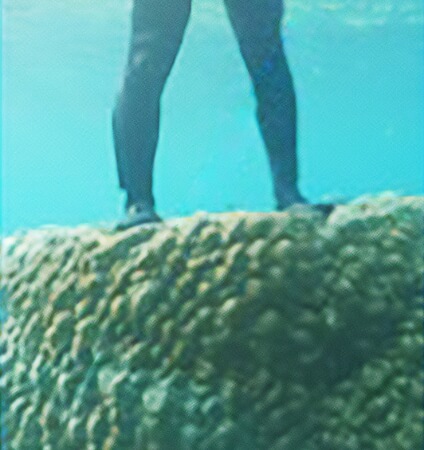
Do not stand.
Once you enter the ocean and start swimming, you should avoid standing anywhere. Coral babies settle not only on coral reefs but also in rocky areas.
02
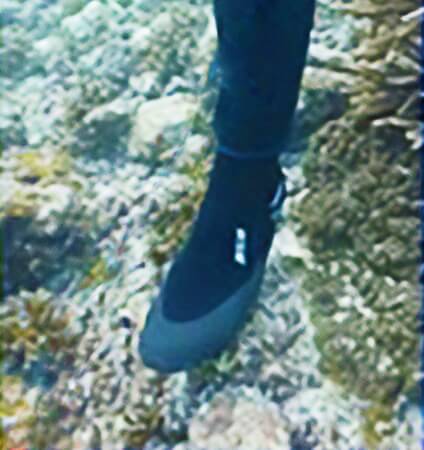
Do not walk.
Coral babies settle and grow on the seabed. If you walk on them, you can crush them and cause damage.
03
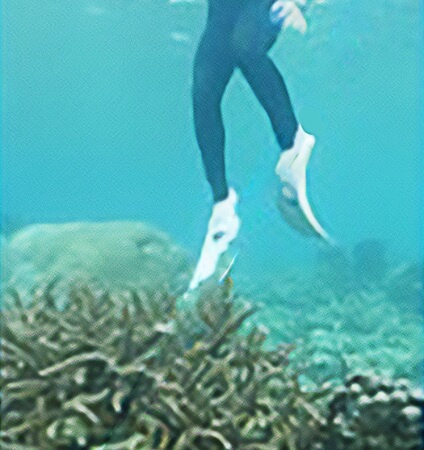
Do not kick.
When standing and swimming, there is a risk of stepping on and breaking the coral. Please wear a mask or goggles and use a floatation device such as a life jacket to ensure that you do not cause any harm to the coral while observing the underwater environment.
04
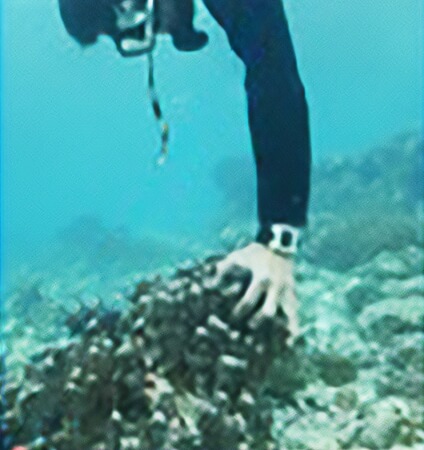
Do not touch.
There are some dangerous creatures lurking in the sea.
05
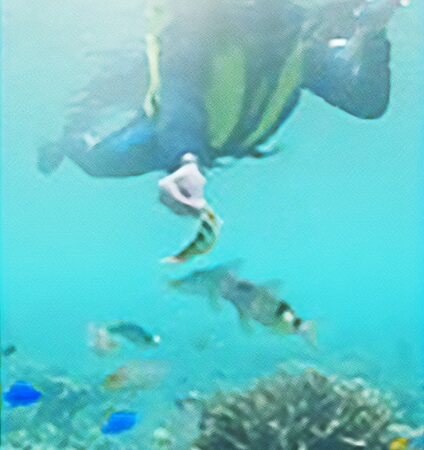
Feeding is prohibited.
Artificial feeding can disrupt the ecosystem.
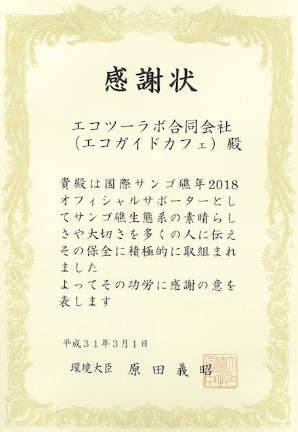
Starting from 1997, coral reef conservation activities have been assessed on Miyako Island for 20 years.
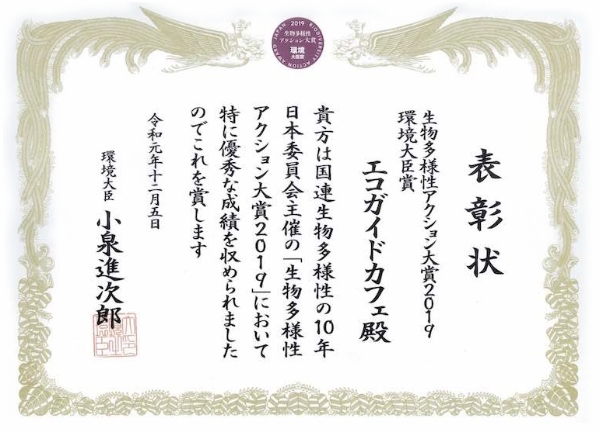
"No Touch Coral Miyakojima" was awarded the Biodiversity Action Award (Minister of the Environment Award) in 2019.
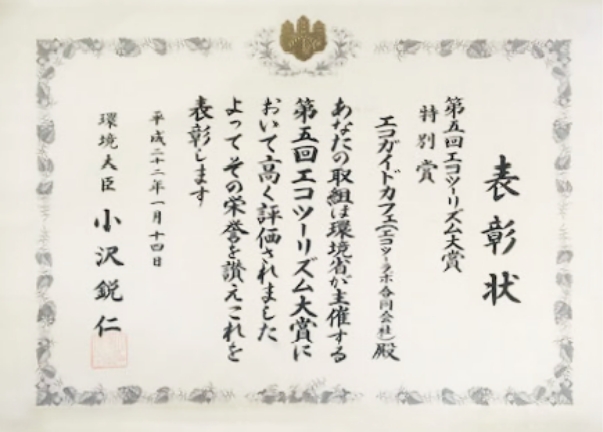
"The Only Ecotourism Award on Miyako Island (sponsored by the Ministry of the Environment)
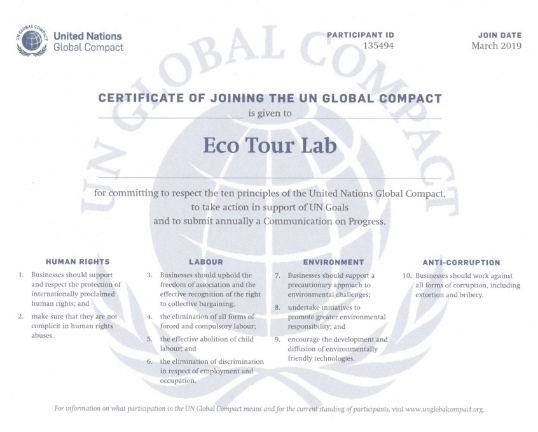
United Nations Global Compact Membership Certificate
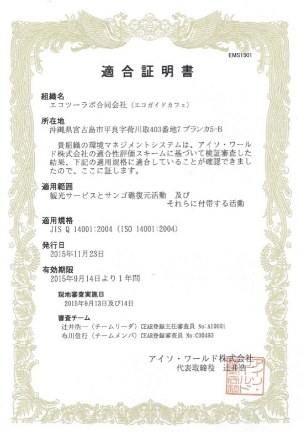
ISO 14001 Self-Declaration and External Audit
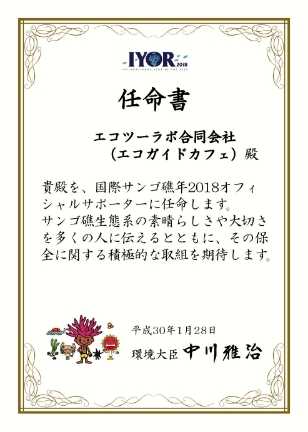
2018 International Year of the Reef
Official Supporter Appointment Letter